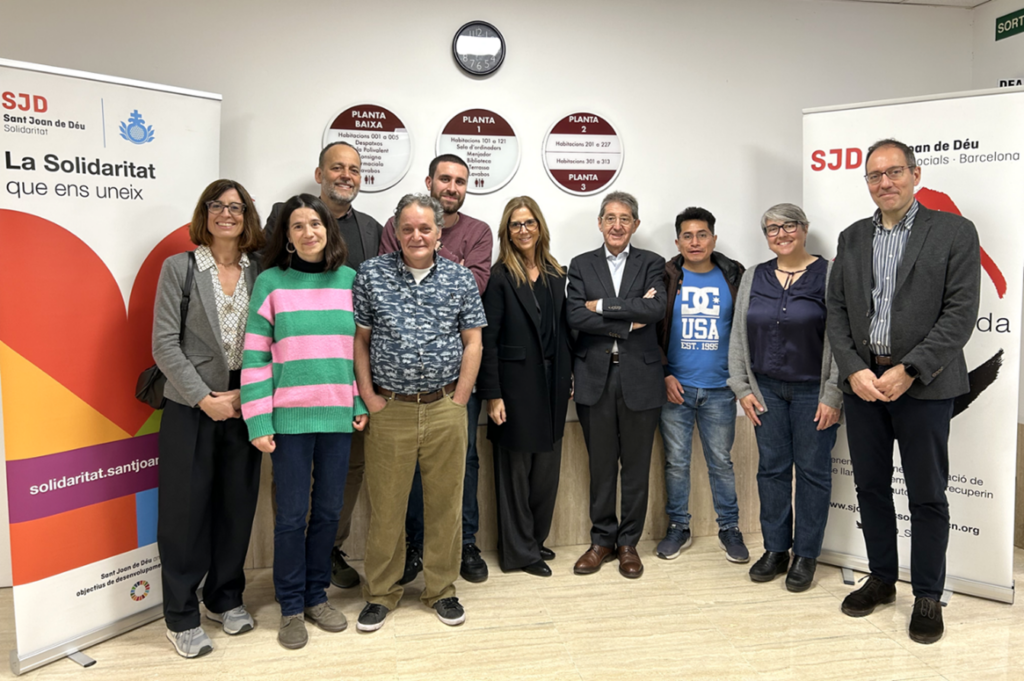- People enjoy a broad range of public transport options within urban environments, but not everyone enjoys the same level of access to use those options freely. Personal circumstances, such as income level, determine this level of access and create a source of inequality in the city (Miralles, 2022)
- Alongside Moventia and TRAM, Sant Joan de Déu has been engaged in a project for the last seven years to guarantee free access to public transport for the homeless in Barcelona. Close on 3,600 people (men and women aged between 18 and 65) in the process of becoming personally autonomous again have already benefited from this programme.
Mobility is one of the key aspects that are essential in combating social exclusion. The “Access to Mobility for the Homeless” programme launched by Sant Joan de Déu with support from Moventia and TRAM helps to reduce this inequality – a problem encountered by many people – by facilitating travel on public transport.
The initiative seeks to offer free access to public transport in the city of Barcelona and surrounding areas for the homeless people being looked after by the various direct support programmes run by Sant Joan de Déu Serveis Socials – Barcelona so they can attend their training, employment or job search activities, medical appointments, regain their network of social and family relationships, engage in socialisation support activities (such as leisure and cultural activities) and any other type of procedure or activity coordinated with the social workers of Sant Joan de Déu to help them take back control of their life.
Moventia and TRAM have been supporting the project for the last seven years as part of the activities undertaken by them both as socially responsible companies. Their involvement pays the annual cost – almost in full – of the project to provide easier access to public transport for the people supported by various social service programmes run by the organisation. In 2023, the programme had a direct impact on the lives of almost 600 people and, in the seven years behind the partnership, close on 3,600 people have benefited.
Both Moventia and TRAM have adopted a clear commitment to people from day one, besides their employees, the people who use their services and the general public. The two companies develop in-house programmes in line with UN SDG 17 ‘Partnerships for the Goals’ and, as is the case on this occasion, partner with non-profit entities and foundations to promote a better society and contribute towards improving quality of life for the most vulnerable.
Public transport, a tool for inclusion
The partnership renewal event was attended by the Corporate Vice-President for Internal and Institutional Communication of Moventia, Sílvia Martí; the Managing Director of TRAM, Humberto López Vilalta; the Director of Sant Joan de Déu Serveis Socials – Barcelona, Salvador Maneu; and the Director of l’Obra Social Sant Joan de Déu – UT1, Oriol Bota.
During the conversation, public transport was highlighted as an essential tool that enables people to engage in daily life, such as studying, working or maintaining a social network, and is especially important for those homeless people needing to access various public resources throughout the city of Barcelona and its metropolitan area. Furthermore, access to transportation allows them to enjoy additional activities that directly impact their recovery because they strengthen social and community ties.
It was also stated at the meeting that this project has a positive impact on employability: over the last year, almost half of the people accepted into the programme have left with a job, a return to the levels achieved pre-pandemic. In this same period, there has also been an upward trend in the number of people leaving the programme with an economic income (86% of those accepted into the programme).



